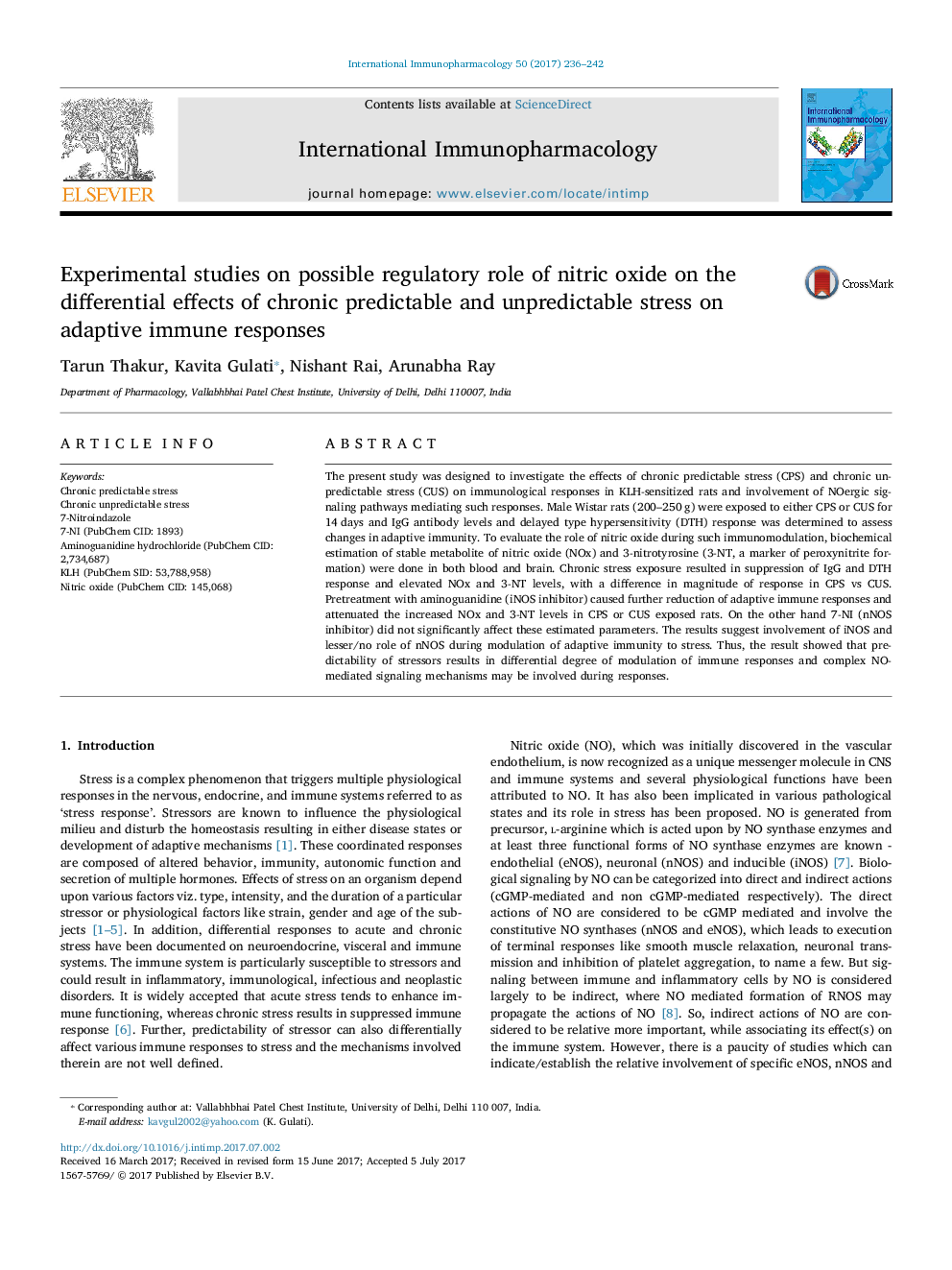ترجمه فارسی عنوان مقاله
مطالعات تجربی در مورد نقش احتمالی نقش نظارتی اکسید نیتریک در اثرات افتراق تنش قابل پیش بینی و غیر قابل پیش بینی مزمن بر پاسخ ایمنی انطباق پذیر
عنوان انگلیسی
Experimental studies on possible regulatory role of nitric oxide on the differential effects of chronic predictable and unpredictable stress on adaptive immune responses
| کد مقاله | سال انتشار | تعداد صفحات مقاله انگلیسی |
|---|---|---|
| 155013 | 2017 | 7 صفحه PDF |
منبع

Publisher : Elsevier - Science Direct (الزویر - ساینس دایرکت)
Journal : International Immunopharmacology, Volume 50, September 2017, Pages 236-242

